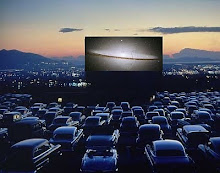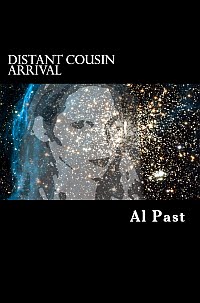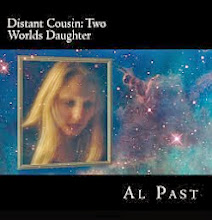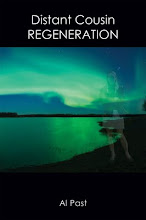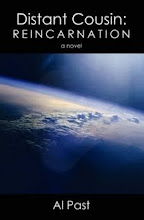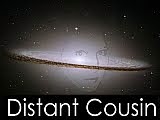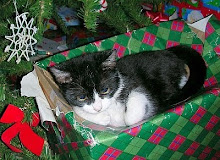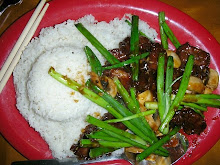Saturday, June 25, 2011
Free book drawing! Thanks to readers; welcome to new readers!
We have mentioned before that we are so very grateful to those unknown readers who recommend the Distant Cousin stories to other readers. The books have remained popular though our advertising budget is zero and we are pitifully inadequate at publicity. It can only be due to word of mouth, when one reader recommends them to a friend. Other readers may have learned about the books from having stumbled upon Ana Darcy's blog, perhaps while searching for a poem, music, recipes, or matters of language and education. But no matter....
We would like to return something to readers both present and future. We invite everyone to enter a drawing for a free copy of the e-edtion of the Distant Cousin title of your choice. There will be five winners! To enter, send an email indicating your choice of title and e-edition (Kindle, Nook, etc.) to albinoni (at) fastmail.fm. Entries close on July 4, 2011. One entry per person, please, but if you have already read all five volumes, you may enter for a friend and pass the fun forward!
With our thanks and best wishes....
Monday, June 20, 2011
A cat poem Ana cannot forget
On the one hand it's odd that Ana and cats share some mysterious affinity for each other, since cats do not exist on her native planet, Thomo. On the other hand, it's not mysterious at all. Anyone who knows cats knows that they have a rich collection of mysterious qualities (as well as a number of perfectly understandable qualities too, of course).
Dogs love humans, unless those humans have given them reason not to. Cats, being nearer to their wild origins, are able to exist on their own, without humans. If a cat should therefore choose to live with people and enjoy their company, it would seem to reflect well on those individuals, or so it seems to us.
Ana recently found a poem about a cat which loved a family but could not be with them (because of "allergies," according to the poet). Yet it stayed as close as it could, loving them through windows and doors, learning their routines inside, and following them around the house, but from outside.
The poem does not end happily, as the family "broke," and moved away, inexplicably leaving the cat behind, and Ana saddened to the point of watering eyes. She particularly liked the lines "Little spark of consciousness, / calm kitty eyes staring / through the window."
The poet says he could not get the cat out of his mind. Neither can Ana.
Gray, by Philip K. Deaver*
*NOTE: The host site for this and some of Ana's other favorite poems in this blog has been closed. But there's a workaround that usually takes you to them! Please see the Apology!
Thank you!
Other cat poems from Ana's collection:
Monday, June 13, 2011
Ana discovers a poem about tomatoes by Pablo Neruda
From her first week on Earth, Ana Darcy was delighted by many of the foods and tastes she found here. Among her very favorites are peppermint, lemon, asparagus, mozarella, chilies, and tomatoes. Living as she does in the Mesilla Valley of southern New Mexico, a famous garden area, fresh vegetables are easy to obtain in season. The family garden, accordingly, is small and tends to emphasize herbs and other rarities.
One crop they always grow is tomatoes, however, and she was thrilled to discover a lovely poem to tomatoes by the Chilean poet Pablo Neruda. It was well within her ability to read in the original Spanish, but the English version also makes a tasty poem. Here are both versions.
"Ode to Tomatoes," by Pablo Neruda/
The street La calle
filled with tomatoes, se llenó de tomates,
midday, mediodia,
summer, verano,
light is la luz
halved se parte
like en dos
a mitades
tomato, de tomate,
its juice corre
runs por las calles
through the streets. el jugo.
In December, En diciembre
unabated, se desata
the tomato el tomate
invades invade
the kitchen, las cocinas,
it enters at lunchtime, entra por los almuerzos,
takes se sienta
its ease reposado
on countertops, en los aparadores,
among glasses, entre los vasos,
butter dishes, las matequilleras
blue saltcellars. los saleros azules.
It sheds Tiene
its own light, luz propia,
benign majesty. majestad benigna.
Unfortunately, we must Devemos, por desgracia,
murder it: asesinarlo:
the knife se hunde
sinks el cuchillo
into living flesh, en su pulpa viviente
red es una roja
viscera viscera,
a cool un sol
sun, fresco,
profound, profundo,
inexhaustible, inagotable,
populates the salads llena las ensaladas
of Chile, de Chile,
happily, it is wed se casa alegremente
to the clear onion, con la clara cebolla,
and to celebrate the union y para celebrarlo
we se deja
pour caer
oil, aceite,
essential hijo
child of the olive, esencial del olivo,
onto its halved hemispheres, sobre sus hemisferios
pepper entreabiertos,
adds agrega
its fragrance, la pimienta
salt, its magnetism; su fragrancia,
it is the wedding la sal su magnetismo:
of the day, son las bodas
parsley del día
hoists el perejil
its flag, levanta
potatoes banderines,
bubble vigorously, las papas
the aroma hierven vigorosamente,
of the roast el asado
knocks golpea
at the door, con su aroma
it’s time! en la puerta
come on! es hora!
and, on vamos!
the table, at the midpoint y sobre
of summer, la mesa, en la cintura
the tomato, del verano,
star of earth, recurrent el tomate,
and fertile astro de tierra,
star, estrella
displays repetida
its convolutions, y fecunda,
its canals, nos muestra
its remarkable amplitude sus circunvoluciones,
and abundance, sus canales,
no pit, la insigne plenitud
no husk, y la abundancia
no leaves or thorns, sin hueso,
the tomato offers sin coraza,
its gift sin escamas ni espinas,
of fiery color nos entrega
and cool completeness. el regalo
de su color fogoso
y la totalidad
(More in the right column under the photo of the LOVE sculpture)
Meet Ana Darcy!
Meet Ana Darcy!
Wednesday, June 8, 2011
Math education and Ana Darcy's children
Their son Julio, in particular, turned out to be keenly interested in mathematics. Julio may have had some innate interest in math, but he also had help: from enlightened parents, from tutors, and from a small bit of otherwordly technology. Here's an excerpt from chapter 1 of Distant Cousin: Reincarnation, published in 2007:
"[Matt] believed [his wife, that] education was apparently crucial on Thomo, Darcy's home planet. Her ancestors had been moved there from Earth thousands of years ago and had had a difficult time surviving, but they had prevailed in style if Darcy was any example. As young as the twins were, they had already surpassed their father in mathematics. [Matt] was hardly gifted in math, but to be bested repeatedly by seven year olds took a little getting used to. Julio in particular loved the math cube that had been a present from Darcy's Uncle Rothan. This was a transparent cube, nearly four inches on a side, which amounted to three-dimensional graph paper. It was wireless—whatever powered it was a mystery to Matt. A small keyboard came with it, and entering coordinates and values in the base unit produced a glowing web of blue lines within the cube that showed the various resulting graphs in different colors. Change the values, and the graph would change. Julio was always bringing it to him asking him to guess what equation had produced it. He never could."
A recent article in The New York Times suggests that this unusual technique by which Julio learned mathematical concepts is now beginning to be realized as particularly effective by educators on Earth.
The article begins thusly:
Like any other high school junior, Wynn Haimer has a few holes in his academic game. Graphs and equations, for instance: He gets the idea, fine — one is a linear representation of the other — but making those conversions is often a headache.
Or at least it was. For about a month now, Wynn, 17, has been practicing at home using an unusual online program that prompts him to match graphs to equations, dozens upon dozens of them, and fast, often before he has time to work out the correct answer. An equation appears on the screen, and below it three graphs (or vice versa, a graph with three equations). He clicks on one and the screen flashes to tell him whether he’s right or wrong and jumps to the next problem.
“I’m much better at it,” he said…. “In the beginning it was difficult, having to work so quickly; but you sort of get used to it, and in the end it’s more intuitive. It becomes more effortless.”
The article goes on to point out:
For years school curriculums have emphasized top-down instruction, especially for topics like math and science. Learn the rules first — the theorems, the order of operations, Newton’s laws — then make a run at the problem list at the end of the chapter. Yet recent research has found that true experts have something at least as valuable as a mastery of the rules: gut instinct, an instantaneous grasp of the type of problem they’re up against. Like the ballplayer who can “read” pitches early, or the chess master who “sees” the best move, they’ve developed a great eye.
Now, a small group of cognitive scientists is arguing that schools and students could take far more advantage of this same bottom-up ability, called perceptual learning. The brain is a pattern-recognition machine, after all, and when focused properly, it can quickly deepen a person’s grasp of a principle, new studies suggest. Better yet, perceptual knowledge builds automatically: There’s no reason someone with a good eye for fashion or wordplay cannot develop an intuition for classifying rocks or mammals or algebraic equations, given a little interest or motivation.
That is precisely what Julio learned to do, years before the technique became understood well enough to publicize.
The people of Thomo, Ana's people, barely survived harsh conditions on their new planet, as we know from the Distant Cousin stories. Their eventual success was due in large part to their collective dedication to education, which they well knew was the ultimate key to survival.
It is no different for us on Earth. In difficult times, whether a result of weather, war, disease, or economic problems, we must not forget that education can be our salvation, whatever it costs. Indeed, it should be one of our top priorities.
Sunday, June 5, 2011
A poem for our daughters makes Ana weep
Ana Darcy Méndez is generally calm and sweet-tempered. Well, almost always. We surely know people who are angered by injustice, or whose heartstrings can be twanged by sentiment. Such feelings make us fully human. Ana's daily life on our planet passes much like the lives of the rest of us, but sometimes something will strike her deeply, and stab her with pangs of emotion. Sometimes that stab comes from poetry--the economy and insights reach her much more directly than our longer literary forms, which are harder for her to register in their totality.
A poem by Mark Jarman, "Prayer for Our Daughters," made her eyes tear up. Like many of the poems in her growing collection of favorites, there's nothing in it that needs explaining by a person with a degree in English (like her husband). It's perfectly clear as is. If you know Ana and her history at all, you know she loves children, and especially girls. She loves all the poet's lines about daughters: "If they forget themselves, may it be in music/Or the kind of prayer that makes a garden of thinking," and "... may they find themselves, as we have found them/Complete at each stage of their lives, each part they add to."
"Prayer for Our Daughters," by Mark Jarman
(Sample more of Ana's favorite poems in the column to the right, under the photo of the LOVE sculpture.)
Subscribe to:
Posts (Atom)









